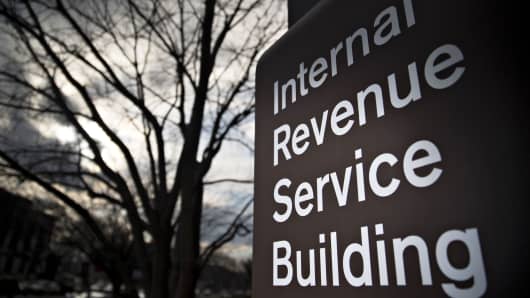For decades, policymakers in Washington have failed to keep our tax system competitive. In an era when the world is now offering the equivalent of 4G connected touchscreen tablets, the U.S. tax code looks a lot like a green-screened, floppy-drive computer from the 1980s. In dire need of an update, the U.S. tax system is dimming the advantages of operating a business in the United States. Sadly, instead of doing what it can to help make the U.S. tax system more competitive, the U.S. Treasury Department has introduced massive new regulations that would negatively impact the livelihoods of millions of U.S. workers.
In what was billed as a way to curb a small sliver of cross-border mergers (sometimes called "inversions"), Treasury officials would like to impose new regulations that make the tax code more complex and give even more power to the IRS. These sweeping regulations are part of Section 385 of the IRS tax code and they have little to do with these mergers, but they will certainly raise the cost of capital and further disincentivize job creation.
The proposal gives the government broad authority to convert a company's related-party debt in common business transactions into equity, thereby increasing taxes, interfering with normal business operations and imposing new costs on businesses in the United States. This authority would not just apply to companies looking to conduct cross-border mergers, but all U.S. companies as well as global companies looking to invest in the United States.
It sounds complex, but you can think about it this way: A first-time homebuyer relies on a home mortgage to finance her dreams. The ability to deduct the interest she pays on the loan helps make the purchase feasible. If Treasury's new rules applied to homeowners, years after the purchase of the home, the IRS could arbitrarily declare that because she used part of her income to buy gifts for her children on their birthdays instead of devoting those resources to reducing her home loan, the interest paid on her mortgage is no longer deductible. She is now responsible for paying hefty additional taxes.
If employers use revenue for purposes, such as paying a dividend, instead of paying off their existing loan, the proposed changes would allow the IRS to reclassify the outstanding debt as equity, thereby increasing the employer's tax burden.
Unsurprisingly, then, the business community has significant concerns with Treasury's proposed actions. Just as families would struggle to rearrange their lives, companies also face similar challenges if their planning and budgeting are suddenly upended. To comply with the new rules, many employers will be forced to spend resources on additional taxes and compliance costs that could otherwise go toward investment and job creation.
As leaders of two organizations deeply connected to America's manufacturing sector, we've been flooded with concerns over Treasury's actions. Manufacturers know what these rules mean, the job losses working Americans will suffer and the investment we will lose to other countries, if the rules go forward.
And there's a lot at risk: millions of high-quality manufacturing jobs.
We can't afford a mistake this large. The regulations create uncertainty for employers interested in expanding and creating jobs and will push companies to defer further investment into their U.S. operations. In other words, these regulations will increase the cost of capital, diminish America's ability to attract global investment, stall job creation and further dampen U.S. economic growth. The compliance cost of these new regulations could mean millions of dollars are diverted from future investment and expansions.
These rules also make life more onerous for businesses. They are unclear, often ambiguous and have a retroactive effective date of April 4, 2016. The government also reserves the right to go back through a company's books three years after the fact. Despite the fact that these are the most wide-ranging regulations proposed in the past 20 years, and overturn 80 years of case law and existing tax provisions, government officials say they are rushing to implement these regulations by the end of the summer.
At a time when America's economy needs a boost, the government is essentially putting U.S. workers at a disadvantage as it makes our country less attractive for companies that increasingly have global options when deciding where to grow their businesses. Instead of lowering taxes to keep us competitive, the government is plotting new ways to raise the cost of doing business on U.S. companies.
Manufacturers and all Americans deserve better. Misguided, piecemeal changes to our tax system are not the answer to any of our problems. It's time for President Obama to step in and stop Treasury from wreaking havoc on the American economy and risking U.S. jobs. Congress and the President must do the hard work of modernizing our tax system so that employers – both foreign and domestic – want to invest and create jobs here at home. It's the right action we need for manufacturers and our country.


